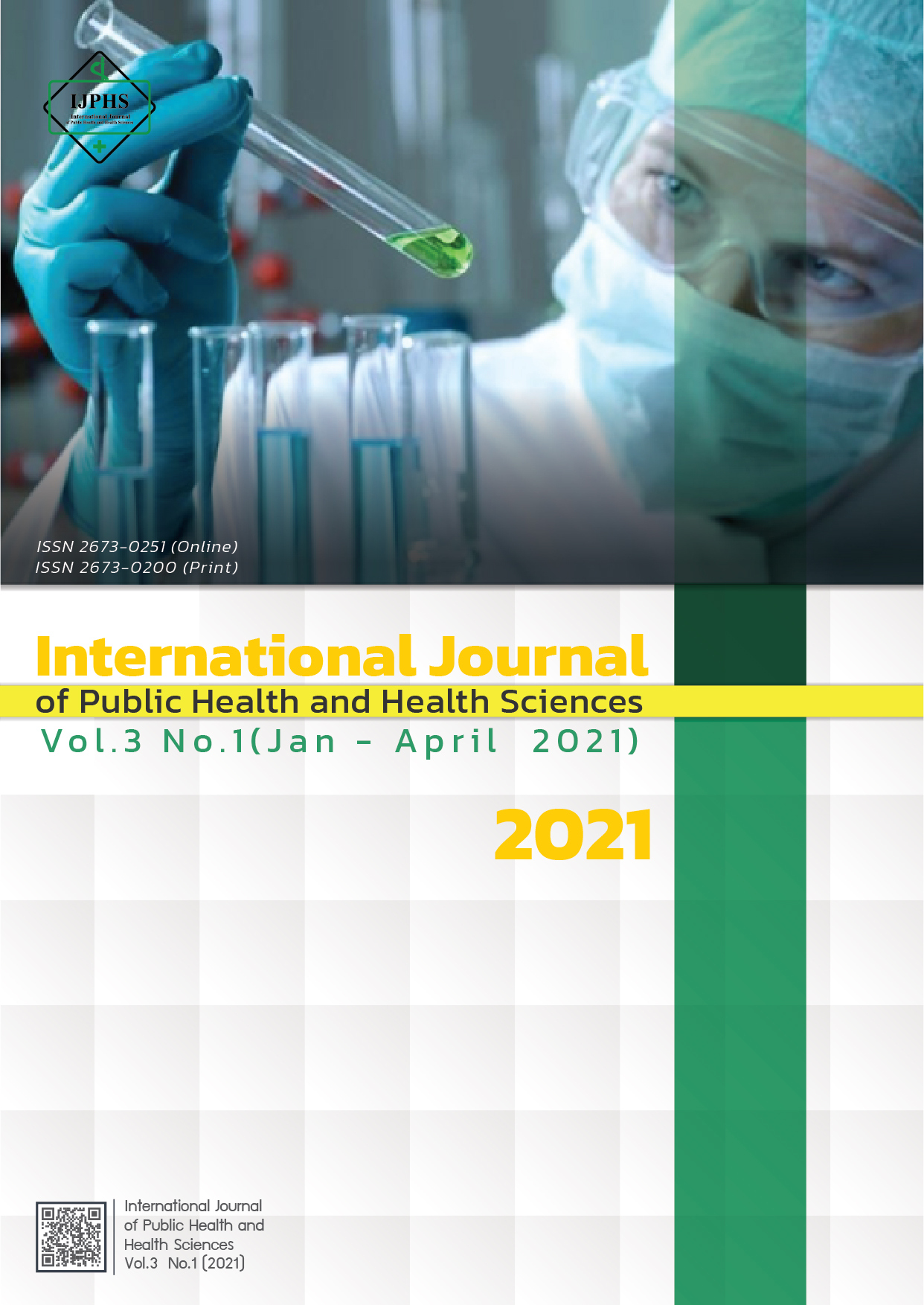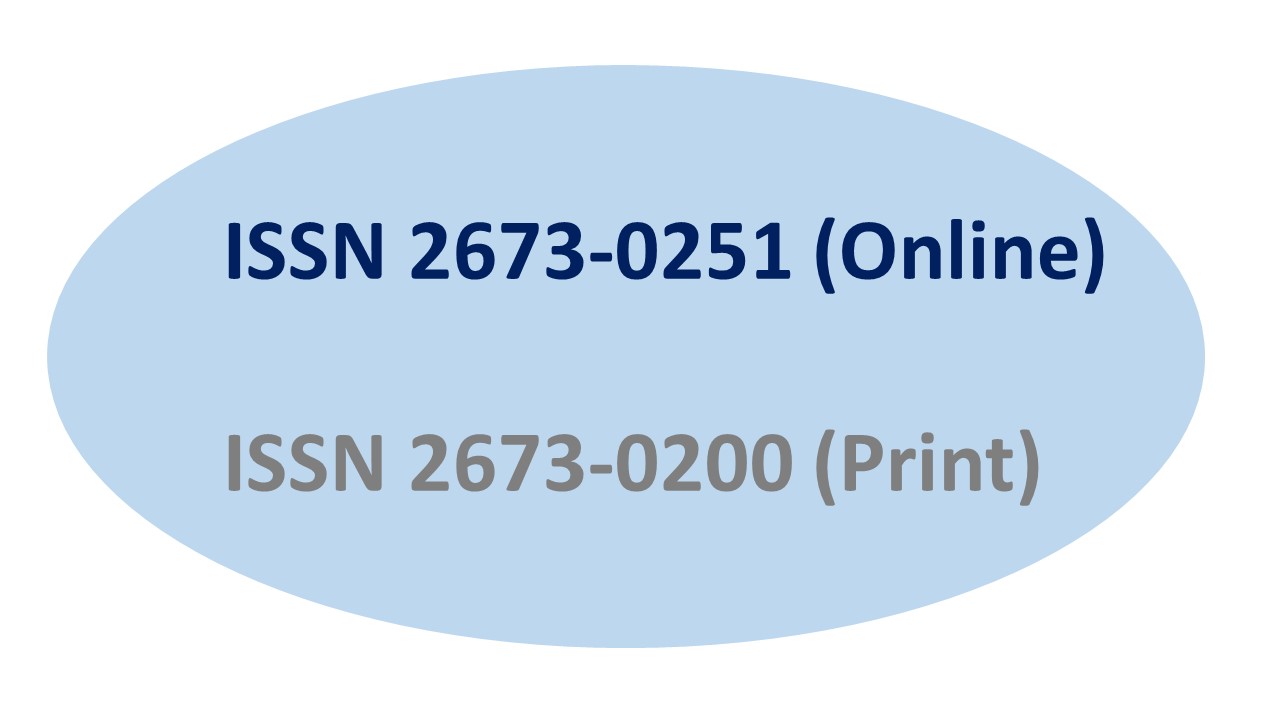Factors Associated with the Consumption of Food Supplements among Working-Age Group in Phrathatbangphuan Sub-District, Muang District, Nong Khai Province, Thailand
-
Keywords:
The marketing mix, food supplement, working ageAbstract
This study aimed to identify the factors associated with food supplement consumption among the working-age group in Phra That Bang Phuan sub-district, Muang district, Nong Khai province, Thailand. A cross-sectional analytical study was completed by 528 participants by a systematic random sampling. Questionnaires were administered for data collection (Reliability=0.77). Both bivariate and multiple logistic regression were fitted to identify associated factors. An adjusted odds ratio with a 95% confidence interval was conducted to determine the level of significance. Results showed that 56.06% of participants were female, aged between 18-59 years old (Mean=37.52 S.D. =12.39) and consumed food supplements around 35.04% of total food supplements for all age groups. Overall opinions on the marketing mix of food supplements were presented at a moderate level (50.95%). The opinions on the product, price, place, and promotion were moderate (48.48%, 57.95%, 59.28%, and 73.67%, respectively). Factors associated with the consumption of food supplements. First, age group 41-50 years old and 51-59 years old (ORadjusted=1.72; 95%CI: 1.04 to 2.83; p-value=0.031and ORadjusted=2.15; 95%CI: 1.28 to 3.62; p-value=0.002, respectively). and health literacy (access dimesion) presented at a high level (ORadjusted=2.09; 95%CI: 1.43 to 3.05; p-value <0.001). It was recommended that the firm need to focus on quality, along with maintaining the quality standards of the brand.
References
Azam, N., Mohammad Mehdi, N., Ali, M., & Marziyeh, Z. (2021). BMC Public Health. doi: 10.21203/rs.3.rs-37135/v1.
Aditya, R., Wiedyaningsih, C., & Kristina, S. (2017). Demographics and factor associated with food supplements use among Yogyakata population. International Journal of Pharmacy and Pharmaceutical Sciences, 9, 53. doi: 10.22159/ijpps.2017v9i12.21737
Barnes, K., Ball, L., Desbrow, B., Alsharairi, N., & Ahmed, F. (2016). Consumption and reasons for use of dietary supplements in an Australian university population. Nutrition, 32(5), 524–530.
Blumberg JB, Zeisel SH. Contribution of dietary supplements to nutritional adequacy in various adult age froups. Nutrients. 2017;9(1325):1–10.
Euromonitor International. (2016). Dietary Supplements in Thailand.
Retrieved September 10, 2018, from Euromonitor Passport database.
Foote, J. A., Murphy, S. P., Wilkens, L. R., Hankin, J. H., Henderson, B. E., & Kolonel, L. N. (2003). Factors associated with dietary supplement use among healthy adults of five ethnicities: the Multiethnic Cohort Study. American journal of epidemiology, 157(10), 888–897. https://doi.org/10.1093/aje/kwg072
Kasikorn research center. (2017). Behaviors and Demands of Elderly
Diatary Supplement in Thailand. Retrieved December 12, 2020, from Journal of Humanities and Social Scinces Naknom University.
Hyo Young Lee, Hyunmi Son and Stephanie D. Short. (2017). Consumption of Vitamins and Associated Factors by Age Group. Asian Journal of Epidemiology, 10: 10-18.
Hsieh, F.Y., Bloch, D.A. and Larsen, M.D. (1998). A Simple Method of Sample Size Calculation for Linear and Logistic Regression. Statistics in Medicine, 17, 1623-1634.
Kaosumpuns K., and Anek P. (2017). The effective of marketing mix to decision making on nutrition food product of consumer in muang district, chiangmai province. Journal of Graduate Research, 8(2), 183–198.
Khamoad N. (2010). Important consumer competences in decision making for dietary supplement consumption. Master of Science, Consumer Protection and Health Management Program College Khonkaen University.
Luís LS, Luís H. (2016). New food product consumer's behaviour: health literacy and neofobia. Global journal of medicine and public health; 5(3):1-6.
Nambuddee N. (2015). The future of dietary supplements and adjustment of marketing strategy in Thai. Journal of Social Sciences Srinakharinwirot, (18), 353–372.
National Statistical Office. (2017). Food consumption behavior of Thai population. National statistical office.
Németh N. Consumer habits of food supplements from the perspective of food safety. J Econ Lit. 2016;.
Nong Khai Provincial Public Health Office. (2017). Annual Report Nong Khai Provincial Health Office. Nong Khai Provincial Public Health Office.
Downloads
Published
Issue
Section
License
If the manuscript is accepted for publication, copyright of the article shall be assigned to the IJPHS. After acceptance of a manuscript, the authors will be requested to complete a copyright transfer agreement form







